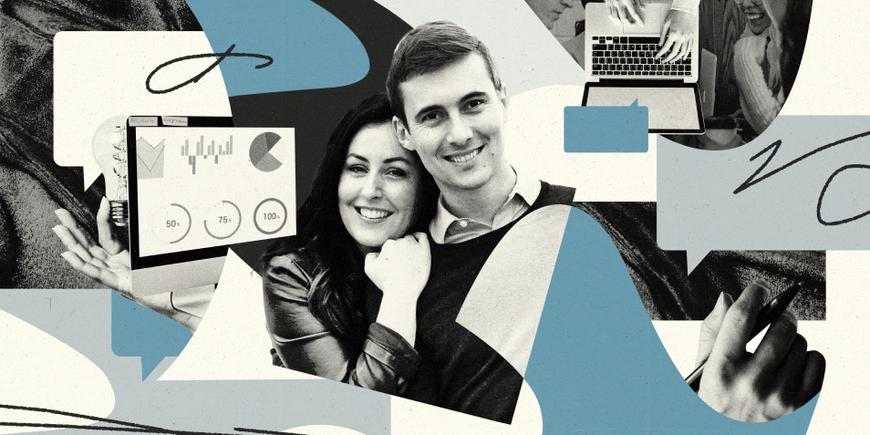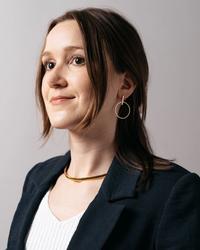COVID Clarified the Importance of New Models for Employee Support; Bravely Caught the Idea Early
We at Primary have been steadfast supporters. Now, after a $15 million Series A, Bravely Cofounder and CEO Toby Hervey reflects on what makes this partnership so strong.

Over the pandemic, Americans have quit their jobs at record rates, whether from childcare gaps, burnout, or better opportunities. The unifying takeaway for employers: It’s time to set a new standard of support for staff.
Bravely’s been thinking this way since 2017. Cofounders Toby Hervey and Sarah Sheehan launched the on-demand coaching platform with the belief that individualized support is the foundation of an inclusive and high-performing company culture.
As the Big Quit has made clear, that’s not always been a perspective shared by corporate America more broadly; the team has certainly had their share of uphill battles. But with the company's recent announcement of a $15 million Series A, we’re thrilled to celebrate the win with this team.
As we reflect on the success, we’d be remiss not to mention how much Toby’s vulnerability and honesty has helped us be the best partners we can. So we sat down to chat about the relationships he’s built here at Primary and how we’ve maximized our impact as a team.
A tougher take on what it means to be founder-friendly
“Part of caring about someone is sometimes telling them what they need to hear and not what they want to hear,” says Toby. “That’s how Primary operates. Primary celebrates your wins and calls you out on your misses in a constructive way. It’s not summer camp. We’re doing hard work together. And I love that candor, that honesty, and I would say that is founder-friendly, versus somebody who’s just blowing smoke up your ass and telling you what you want to hear all the time.”
Toby knows he can be honest about challenges and can count on Primary’s thought partnership toward solutions. “If something’s going wrong, I come into the call having thought about what the problem is, why it happened, any early thoughts I might have about it, how we get to resolution, or what the future of it might look like. But also I know that they will be partners to me in solving it. And I know that that initial conversation could spark some insight that I don’t necessarily have myself and will help me get to that resolution or on the path to resolution faster.”
“That comes from how you work together. It’s building some psychological safety, but knowing that there’s accountability. It comes from reciprocity and sharing feedback on both sides.”
Steering through rocky times as a team
Toby knows that safety and partnership is there because he’s seen it in some of his most trying moments as a founder.
Primary made a seed investment in Bravely in 2017 and was a constant collaborator through early-stage growth. In 2019 the Bravely team signed a Series A term sheet — and the investor backed away five days before the close. “We were in a terrible place,” Toby says. “In retrospect, we rushed. We did not spend enough time with that investor before we signed their term sheet. We got a little caught up in the velocity of it, the better terms, the bigger round size. And we didn’t really think about it or make sure that we knew who we were getting into business with.”
“But Brad could not have been more in the trenches with us. He was in it as things started to go south with this investor, and there was all sorts of misbehavior and weird stuff going on on their side that we couldn’t fully explain. He was with us thinking through it on calls, backchanneling, working every angle he could. And then when it fell apart, and frankly, we were very close to losing everything, he led the charge on wrangling our existing investors, put money into a note, and bought us enough time to raise another round and continue. It was just completely disproportionate, frankly, to where we were as a business, how important we were to the overall Primary portfolio at that point.”
“It felt like he made such an outsized commitment, and really put the time in to save us. He was both super pragmatic about the realities of it, and really made an effort to make sure that Sarah and I knew that a lot of this wasn’t our doing, wasn’t our fault. I’ll never forget the spirit of his partnership in those few months, because it was just essential. We wouldn’t have gotten through it without Brad.”
The Cassie Young chapter
About a year later, Operating Partner Cassie Young joined the firm and over time transitioned into Brad’s board seat, which she now officially fills.
“Cassie’s been exactly what the doctor ordered for this phase of the business. She’s really putting a punctuation mark on product-market fit, the beginnings of building this go-to-market function, making so much time to support our head of sales. She’s been critical in our growth. I literally have dreams about one-on-ones with Cassie. She brings so much knowledge and perspective.”
“Anyone can say, ‘Oh, here’s a template XYZ.’ But to give a template and give contextual specificity and recommendations on how this might apply to the nuances of our business… Cassie has a gift for that balance. She’s been an incredible partner the last year and a half as we’ve tried to figure out sales comp plans and how to think about shared ownership of related functions like sales, demand gen, and account management. There are a million things that we ask her about on a weekly basis that she gives us really specific and actionable guidance around.”
“If we’re going to be a product and a platform that says, ‘I help companies have great cultures and help people feel empowered and fulfilled and professionally self-actualized at every level and at every stage of their life at work,’ we’d better, you know, walk the walk. I feel tremendous pressure and anxiety around that. This feels very much like what we’re going through right now, as we’ve hired a bunch of people in the last few months and we’ve seen a dramatic change in the team. And the next year really is about a lot of team building, internal culture process, and building.”
“I had a great session literally this week with Cassie about team and hiring and how you balance accountability and performance with empathy and understanding when we’re trying to be experimental — and we’re still distributed. So I think they’re great thought partners to that. And I appreciate that I can be so vulnerable about where I’m outside my comfort zone and in uncharted territory. I’ve never done anything at the scale that I’m doing now. I’ve never managed an org this big. And I do feel like I can own that with Primary. I don’t feel like I have to come in with the answers. And I don’t think that undermines their conviction in me.”
Room to grow well
Bravely isn’t officially a B Corp or Public Benefit Corporation, but the team puts social responsibility and a vision for a more equitable world at the center of all their work. And Primary has supported that balance.
“In some ways we’ve embraced this very hyper-capitalistic model of venture, but our bet is that we can scale to a venture-size business and a venture-scale outcome while not sacrificing the experience and the way we treat people along the way and the kind of culture that we’ve built here. Primary’s been collaborators, thought partners, and sounding boards for balancing the realities and expectations of a startup with the ethos we subscribe to, where it’s not growth at all costs and people aren’t just cogs in a machine.”
Primary and Bravely have also helped other portfolio companies do this, by signing them up as customers. Electric has been very vocal about using the platform. Mike Simmons from Andros has been a sounding board and office mate. Harry Ritter from Alma has long been a source of support and inspiration.
Series A preparedness: round two
Starting in the last half of 2020, the Bravely team and its board has focused on the metrics that matter for a Series A, particularly around repeatable growth and pipeline.
“That rigorous discipline really helped us never lose track, and therefore we were in a really good place. And then as part of getting ready, frankly, I did this practice pitch for the whole Primary team and got ripped to shreds because it wasn’t good. That was another wake-up call about how much more work we needed to really be ready. There was lots of sidebar, feedback, deck review, and time spent on target lists and refining the approach. Everything from, ‘Here’s the Primary playbook,’ to, ‘Here’s the one-on-one time to coach you and get you ready and support you.’ And Cassie had taken over the board seat, but I appreciate it so much that Brad stayed really involved as well. He’s seen so many of these and supported great outcomes, so his willingness to continue contributing his expertise was really formative. And again, it was that classic blend of tough love and thoughtful, strategic, specific guidance that I associate with Primary, that was very much a part of our Series A preparation process.”
This time around, the timing really felt right outside the company as well. “The last year in many ways has forced companies to think differently about how they support their people and embrace solutions like ours. We’ve been fortunate and it’s been really energizing to be able to help people in this way during such a difficult time. And we don’t see that going anywhere. We’re still going to be navigating uncharted territories with hybrid workplaces and the cultural ramifications of that as some people outside the office feel excluded, as women disproportionately are the people not coming to the office as much.”
“So I think the last year has just been an acceleration of trends that were already in progress: that the future of work is now, companies have to think differently about their employee experience to be competitive on talent, and talent is the only way you stay competitive in general. And it’s been difficult personally to navigate all the changes in this time, but it’s been tremendously gratifying to be able to play some sort of role in helping through it. That energy will keep carrying us forward from here, and closing our $15 million round is a capstone to it all.”
